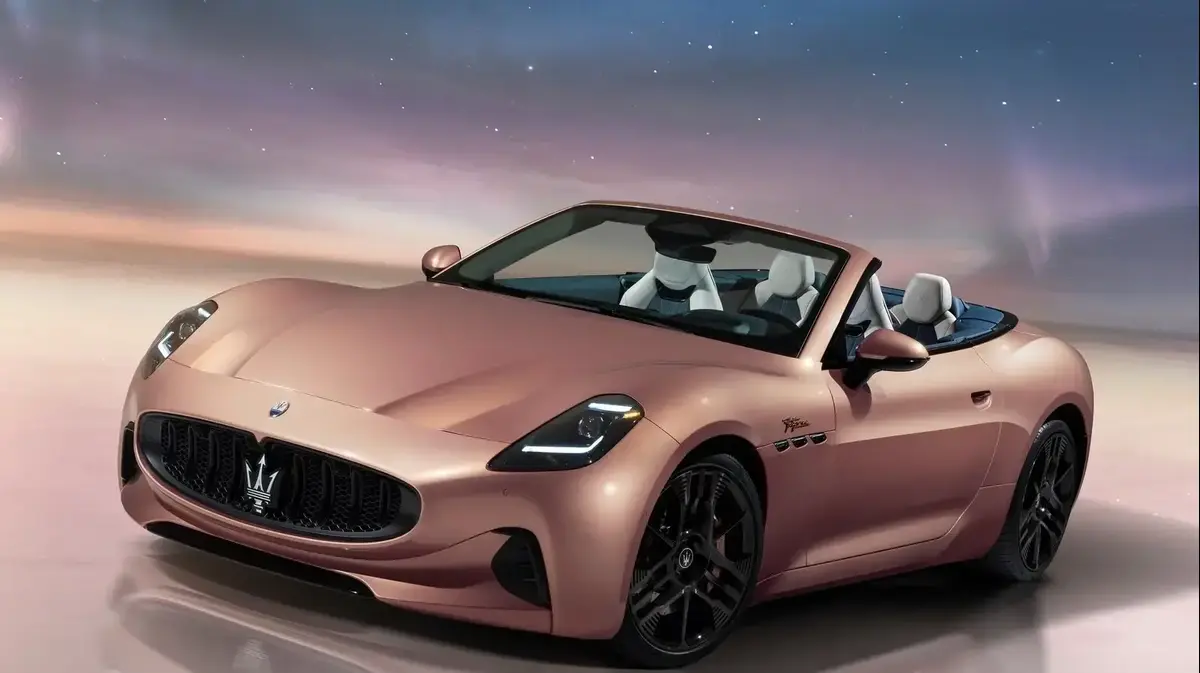Dear readers,
do you know the Keeling curve?
It shows how high the CO₂ concentration is in the earth's atmosphere.
And it rises and rises and rises.
It was recently announced that a measuring station on Mauna Loa, a volcano in Hawaii, recorded a new high in mid-May: 421.68 parts per million.
There has never been more carbon dioxide in the air than there is today in living memory.
The warning that also comes from this new data point is known.
Emissions must go down.
In the meantime, however, it is becoming increasingly clear that this would not only serve to flatten the Keeling curve.
The use of regenerative energy sources, the occurrence of which is not limited to a specific national territory, makes you independent.
And the EU no longer wants to be dependent on a country that is rich in raw materials.
In the future, the EU wants to import fewer and soon no more fossil raw materials from Russia, because it is these imports that the Kremlin is using to finance the cruel war of aggression in Ukraine.
Commission President Ursula von der Leyen presented a strategy this week that should make this possible - and that the energy transition will finally miss the decisive boost, the "turbo", as von der Leyen said.
What does this strategy look like?
By the end of the decade, by 2030, the EU wants to meet its energy needs without having to buy energy from Russia.
300 billion euros should bring this goal within reach.
Previous climate targets will be raised for this.
For example, solar energy is to be expanded over the next eight years, and the number of systems is to be tripled.
Solar panels on the roofs of commercial buildings are to become mandatory from 2026 and for private houses from 2029.
more on the subject
Fear of the blackout: How does Germany generate 3500 terawatt hours of electricity per year?By Philip Bethge
In addition, energy consumption is no longer to be reduced by just nine percent, but by 13 percent.
A ban on subsidies for boilers that use fossil raw materials, a subsidy program for climate-friendly heating systems and millions of heat pumps throughout Europe could contribute to this.
Further incentives to save electricity could be created through tax adjustments.
By 2030, ten million tons of green hydrogen are to be produced in the EU and another ten million tons imported.
Overall, by the end of the decade, 45 percent of the energy in the EU should come from renewable sources.
Previously, a share of 40 percent had been targeted.
In 2050, the EU must finally achieve climate neutrality.
The EU's “turbo” proposals are ambitious, but so far they are nothing more than proposals.
In this analysis, my colleague Susanne Götze explains why some of these ideas could still fail.
It also addresses the question of which measures the EU Commission is still reluctant to take.
A comprehensive speed limit that would save billions of liters of oil, for example, does not appear in the list of proposals.
Only a "speed reduction" is suggested.
However, the number of EU member states that do not have a speed limit on motorways can be counted on one hand – or rather, on one finger.
The fear in Germany doesn't seem to be that great yet.
If you like, we will inform you once a week about the most important things about the climate crisis - stories, research results and the latest developments on the biggest issue of our time. You can subscribe to the newsletter here.
The topics of the week
Accelerated Green Deal of the European Commission: Put the brakes on Putin – and save the climate
Since the Ukraine war, the energy transition cannot happen fast enough.
The EU is now speeding up solar and wind.
At the same time, there is a renaissance of coal and gas in Europe.
Research on extreme weather events: Climate crisis makes heat waves in India a hundred times more likely
In India and Pakistan, temperatures of up to 50 degrees have been historically high for weeks.
British researchers have calculated that such extreme weather will occur much more frequently in the region in the future.
Minister Habeck's campaign for energy efficiency: Saving remains the exception
While the government is not hesitating when it comes to buying expensive liquid gas, it still doesn't want to hurt anyone when it comes to saving energy.
Scientists are now criticizing Robert Habeck's plans.
Off New Zealand's coast: Extreme heat wave bleaches
sea sponges These marine animals are considered to be particularly adaptable: But the climate crisis is also affecting the sponges in the South Pacific.
Mass bleaching was recorded off New Zealand for the first time.
"Climate Report" podcast: Why is the German energy transition stalling?
Germany is running out of time.
The federal government promises that the country will be climate-neutral by 2045.
In order to achieve this, the deadlocked energy transition must be accelerated.
How can this succeed?
World Weather Organization climate report: We have already warmed the planet by 1.1 degrees
According to the Paris Agreement, global warming must be limited to 1.5 degrees.
The new climate report from the World Weather Organization shows how close that will be.
Sea levels are also rising at record speed.
Drought in Germany: "We live in Brandenburg on a powder keg"
The number of forest fires in Brandenburg is threatening.
The ecologist Pierre Ibisch explains what the fire brigade is missing, what climate change has to do with it and why only mixed forests protect us in the long term.
stay confident
Your viola keel















